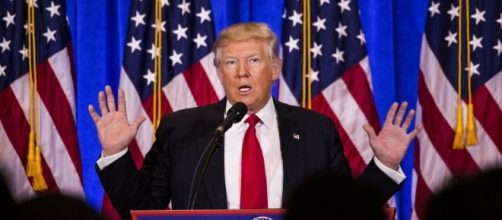Donald Trump announced new reforms in terms of trade deals in the Automotive Industry. His first suggestion was to expand vehicle production of foreign brands in the US – among others, the Japanese. ''Japan's auto market is open'', says Hiroto Saikawa, chairman of the Japan Automobile Manufacturers Association. They are willing to negotiate with Washington to eliminate potential barriers with the US. If not solved, this could become a serious issue, because president Trump clearly stated that he would impose new taxes on imported vehicles. Fortunately, Japanese car manufacturers did not take this as a potential threat to their economy, but as a necessary measure of the president to increase employment in the US.
Automotive industry in the US
Additionally, President Trump proposed renegotiation of North American Free Trade Agreement (NAFTA), where he also put an emphasis on Mexico, where Toyota, one of the most popular Japanese brands in the US, is being manufactured. Toyota, together with Honda and Nissan, is often referred as Japan's the ''Big Three'', as opposed to American brands Ford, General Motors, and Chrysler.
It is interesting to note that research conducted last year showed that these Japanese companies built three times more cars than Detroit (home of the American Big Three) in last three years. Ford, being the most popular US-produced vehicle, also feared that this renegotiation would negatively affect their plans, cancelled building a new factory in Mexico.
Instead, they decided to build one in their parent state.
Testing the strength of East-West relations
The talks about the economic ties between Japan and the United States will officially begin next month. These negotiations will be led by Japanese Deputy Prime Minister Taro Aso and Mike Pence, US Vice President. The success of these talks will be crucial for fostering the trade in the future.
It is important to mention that not only the automobile industry will be affected by the results of these negotiations. These would expand on other branches where these two countries have mutual interests, and above all – benefits. Maintaining good relations between these countries is of particular importance for both sides.
Therefore, the public expects that there will be no negative results, no new taxes which would, for sure, tighten US-Japanese relations. Bilateral economic and trade ties have deepened since the countries were members of the same trade organizations, such as Trans-Pacific Partnership Agreement and it would continue to be mutually beneficial, but president Trump also decided to cancel the US membership when he took the office

